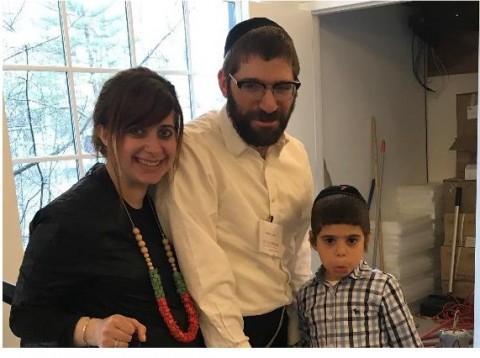 Amid the peace and tranquility of a spring weekend at Camp Simcha, 20 families came together to mourn beloved children and find strength for the days ahead during the Donald Alan Harris Healing Hearts Bereavement Retreat. read full story
Amid the peace and tranquility of a spring weekend at Camp Simcha, 20 families came together to mourn beloved children and find strength for the days ahead during the Donald Alan Harris Healing Hearts Bereavement Retreat. read full story


 Amid the peace and tranquility of a spring weekend at Camp Simcha, 20 families came together to mourn beloved children and find strength for the days ahead during the Donald Alan Harris Healing Hearts Bereavement Retreat. read full story
Amid the peace and tranquility of a spring weekend at Camp Simcha, 20 families came together to mourn beloved children and find strength for the days ahead during the Donald Alan Harris Healing Hearts Bereavement Retreat. read full story

Any occurrence that constitutes a significant break in routine coupled with a potential threat to life and limb can evoke traumatic reactions. Many residents in our community have been exposed to such trauma during the recent hurricane and may be emotionally reeling from its impact.
The following suggestions for helping your children and family cope with the lingering impact and effects of this calamitous event may be helpful as the entire community comes to grips with the devastating storm. read full story


It’s impossible to shield children from sadness, but parents can take steps to make sad or disturbing news easier to hear — and bear.
Dr. Cheryl Book, Director of Family and Clinical Services, answers parents’ questions about how to break the news that someone a child knows has been diagnosed with a life-threatening illness.
Unfortunately, it is quite probable that most children will know someone who is diagnosed with cancer during their childhoods. It could be a friend or teacher, a neighbor or a family member. It might be someone on their periphery, or someone close to them. Your child will have questions and will look to you for answers. The following pointers may make a difficult conversation easier. read full story
Note: The professionals at Project CHAI, Chai Lifeline’s crisis intervention and bereavement division are available to answer questions and provide personalized assistance to parents, educators, and community leaders following this weekend’s tragic fire in Midwood, Brooklyn. Please call 855-3-CRISIS or email CRISIS@CHAILIFELINE.ORG. Rabbi Sruli Fried, MSW, has prepared this video presentation: Speaking To Your Children About the Midwood Fire
The Jewish community of Midwood, Brooklyn, one of New York’s five boroughs and home to one of the largest Jewish communities outside Israel, was rocked by the devastating fire that killed seven siblings, ages 5 to 16, and left a mother and surviving daughter in critical condition.
Within minutes after the Sabbath ended, Chai Lifeline’s crisis hotline lit up with phone calls from concerned parents who needed assistance talking to their children about the tragedy. Project CHAI’S professionals, all therapists with training and experience in responding to traumatic situations, offer the following suggestions for parents, educators, and community leaders:
white ray ban sunglasses
Our challenge is not to keep bad news at bay, but to help our children understand, accept and express themselves when it happens.
ray ban sunglasses german
It will be the rare child who will pass into adulthood without being touched by the death of someone close. Events like this week’s massacre at a Har Nof, Israel, synagogue, splashed all over the media in gory detail, can also shock or trigger distress. Chai Lifeline’s crisis team offers parents a 7-point guide for adults who must help children process a personal or communal tragic event.
1. Get yourself under control. Showing emotion is appropriate. Allowing yourself to be overcome with grief when transmitting news is scary for children. They need to know that an adult will take care of them.
2. Talk about death in age appropriate, direct, factual terms. Speak in a gentle voice. Parents can hug their children, hold their hands, or place their arm around their shoulders.
3. Encourage children to give voice to their feelings. Emphasize that there are no right or wrong reactions. Validate their emotions. Chances are, whether the dominant feeling is sadness, anger, relief that someone is no longer in pain, or intense longing, others feel it as well.oakley gascan sunglasses
4. Focus children’s attention on activities that can provide solace. If they don’t want to speak, they may feel better by drawing, writing in a journal, playing, making music or engaging in art projects.
5. Let children know who they can turn to for support. Never leave a child feeling stranded.
6. Encourage children to engage in activities they find comforting and relaxing. Let them know that even the saddest people need to play, be with friends, and distract themselves or they will be overwhelmed by grief. At the same time, you need to allow children to be children. Don’t get upset when they act their age.
7. Understand that children process bad news differently at each stage of childhood.Cheap ray ban sunglasses